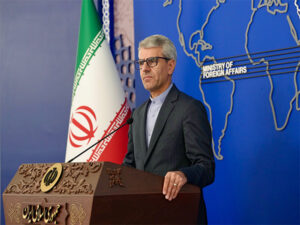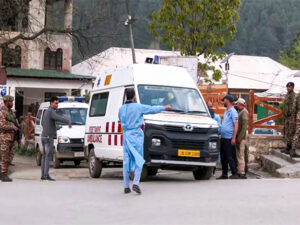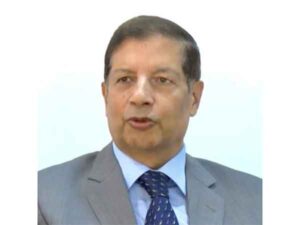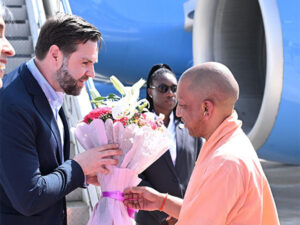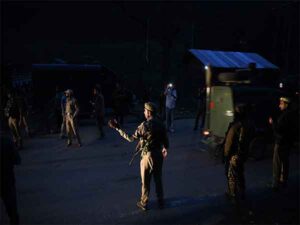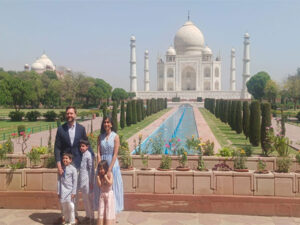Lanka President to attend public dedication of Jaffna Cultural Centre built with Indian grant
Jaffna [Sri Lanka], February 10 (ANI): Sri Lankan President Ranil Wickremesinghe will on Saturday participate in an event marking the dedication of the Jaffna Cultural Centre to the people of Sri Lanka. Built with an Indian government grant, the centre will stand as a symbol of the growing bilateral and developmental ties between New Delhi and Colombo.
Along with the Sri Lankan President Ranil Wickremesinghe, Union Minister of State for Fisheries, Animal Husbandry & Dairying Dr. L Murugan, Sri Lankan Minister of Fisheries and Jaffna District Member of Parliament Douglas Devananda, Minister of Buddhasasana, religious and cultural affairs Vidura Wickramanayaka, and Indian High Commissioner to Sri Lanka Gopal Baglay will be among the dignitaries at the event.
Located next to the iconic Jaffna Public Library, the Jaffna Cultural Centre will be the tallest building in Jaffna town. The centre was conceived as a reconciliation project and is primarily aimed at expanding cultural infrastructure for the people of Northern Province and help them reconnect with their cultural roots as well as to the rest of the country while rejuvenating the ancient cultural heritage of Jaffna.
The centre is equipped with state-of-the-art facilities that include a museum on two floors; an advanced theatre-style auditorium for more than 600 people, a single-storeyed learning tower, and a public square which could also act as an amphitheatre, among others. It also has a temporary exhibition gallery (air-conditioned), an open exhibition gallery, a gift shop, museum stores and workshop, a 100-seat conference facility, a cafeteria, a multi-media library, lecture rooms, studios, and gallery spaces.
The JCC is located close to the Jaffna Public Library. The design for the Jaffna Cultural Centre (JCC) is based on the twin concepts of “celebrating the old and inspiring the new” & “a civic space for shared experiences of art and culture”.
The Memorandum of Understanding for the construction of the Jaffna centre was signed on June 9, 2014. Following its construction, the facility was virtually inaugurated during the visit of External Affairs Minister Dr S. Jaishankar to Colombo in March 2022.
Then Sri Lankan Prime Minister Mahinda Rajapaksa was also part of the virtual inauguration event, nearly two years after its construction. The Union government has also agreed to extend maintenance support to the island nation for a period of five years. Both sides signed an enabling clause to operationalise this commitment in March 2022.
The architects of the Jaffna Cultural Centre (JCC) were selected via an architectural design competition in 2011. The construction of the centre started in September 2016 and was completed in March 2020. The centre will enable the people of Jaffna to enjoy various local and international cultural products. It would also serve as a delivery centre for training, instruction and education in a variety of cultural disciplines. It has been developed as an iconic building that will emerge as a cultural forum that embodies coexistence and cooperation amongst the various communities on the island.
The centre is envisaged as a public space to “promote, preserve and foster the cultural heritage of Jaffna”, and serve as “a hub of cultural activities” in Sri Lanka.
Jaffna, which is the erstwhile cultural capital of the country holding national and regional importance, suffered many losses during the protracted civil war. However, local artists, academics and cultural activists have kept the flames of Jaffna’s cultural life burning through the last few years.
In addition to large-scale mainstream events, other small-scale classical and contemporary arts events continue to take place in Jaffna and draw sizable audiences, whether it be dance, cinema, theatre, music or design. Frequent collaborations, workshops and training programmes also bring other artists from across the globe and the country to Jaffna.
The JCC will be a modern, state-of-the-art, world-class cultural institution, through which the region could be reinstated to its former role as a major cultural hub of Tamil culture in the South Asian region.

